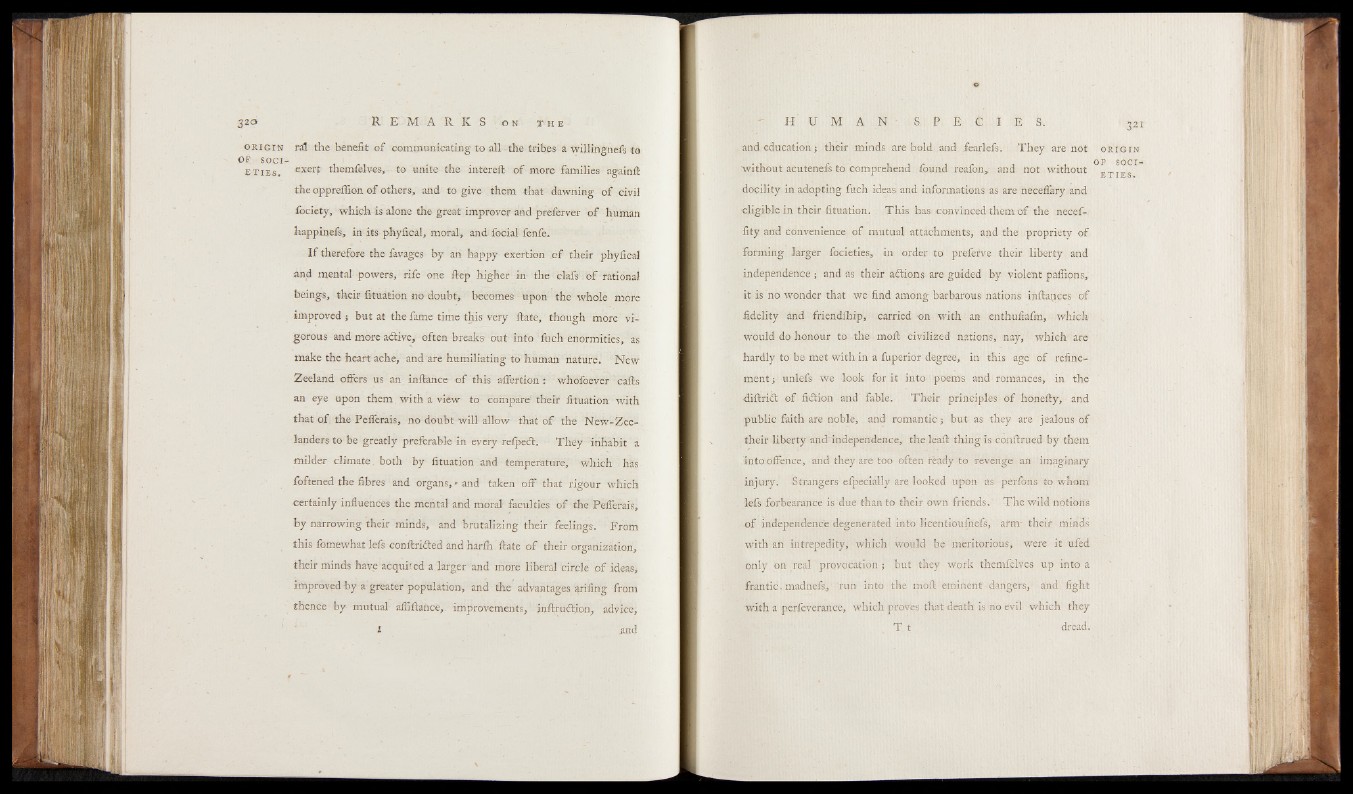
o r ig in ral the benefit o f communicating to all the tribes a willingnefs to
oe societies.
exerf themfelves, to unite the intereft o f more families again ft
the opprefliom o f others, and to g ive them that dawning o f civil
fociety, which is alone the great improver and preferver o f human
happinefs, in its phyfical, moral, and iocial fenfe.
I f therefore the favages by an happy exertion o f their phyfical
and mental powers, rife one ftep higher in the clafs o f rational
beings, their fituation no doubt, becomes upon the whole more
improved ; but at the fame time this very ftate, though more v igorous
and more active, often breaks out into fuch enormities, as
make the heart ache, and are humiliating to human nature. New
Zeeland offers us an inftance o f this affertion: whoibever calls
an eye upon them. with a view to compare'their fituation with
that o f the Pefferais, no doubt will allow that o f the New -Z e e-
landers to be greatly preferable in every refpeft. Th e y inhabit a
milder climate, both by fituation and temperature, which has
foftened the fibres and organs,» and taken off that rigour which
certainly influences the mental and moral faculties o f the Pefferais,
by narrowing their minds, and brutalizing their feelings. From
this fomewhat lefs conftrifted and harih' ftate o f their organization,
their minds have acquired a larger and more liberal circle o f ideas,
improved by a greater population, and the' advantages arifing from
thence by mutual affiftance,. improvements, inftrudfion, adyice,
I and
H U M A N S P E C I E S ,
and education j their minds are bold and fearlefs. Th e y are not o.
without acutenefs to comprehend found reafon, and not without j
docility in adopting fuch ideas and informations as are neceffary and
eligible in their fituation. This has convinced them o f the necef-.
fity and convenience o f mutual attachments, and the propriety of
forming larger focieties, in order to preferve their liberty and
independence; and as their actions are guided by violent pafiions,
it is no wonder that we find among barbarous nations inftances of
fidelity and friendihip, carried on with an enthufiafm, which
would do honour to the moft civilized nations, nay, which are
hardly to be met within a fuperior degree, in this age o f refinement
j unlefs we look for it into poems and romances, in the
■ diftrift of fiftion and fable. Their principles o f honefty, and
public faith are noble, and romantic ■, but as they are jealous of
their liberty and independence, the leaft thing is conftrued by them
into offence, and they are too often ready to revenge an imaginary
injury. Strangers efpecially are looked upon as perfons to whom
lefs forbearance is due than to their own friends. The wild notions
o f independence degenerated into licentioufnefs, arm- their minds
with an intrepedity, which would be meritorious, were it ufed
only on real provocation ; but they work themfelves up into a
frantic. madnefs, run into the moft eminent dangers, and fight
with a perfeverance, which proves that death is'no evil which they
T t dread.
RIGIN
SOCIisilp